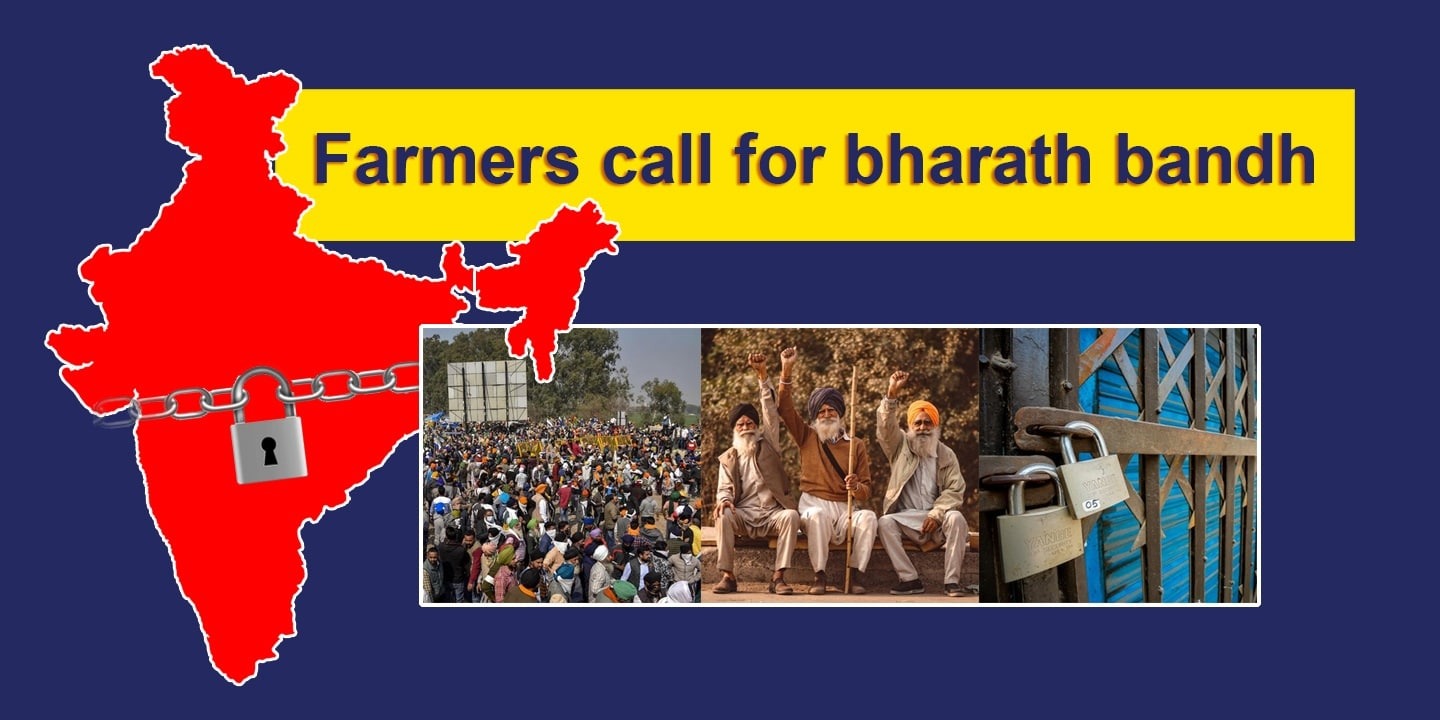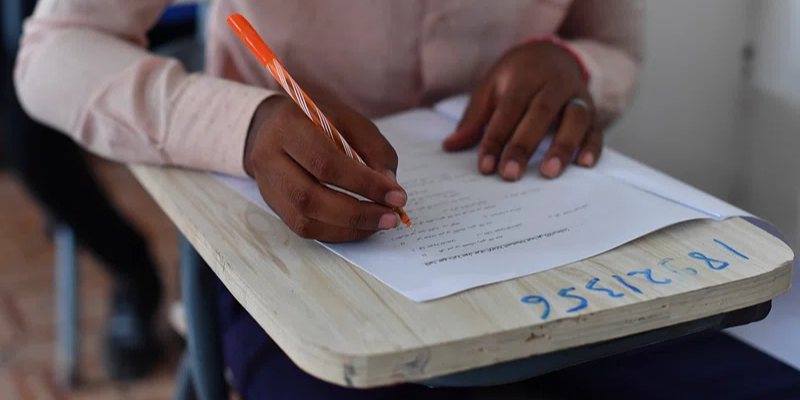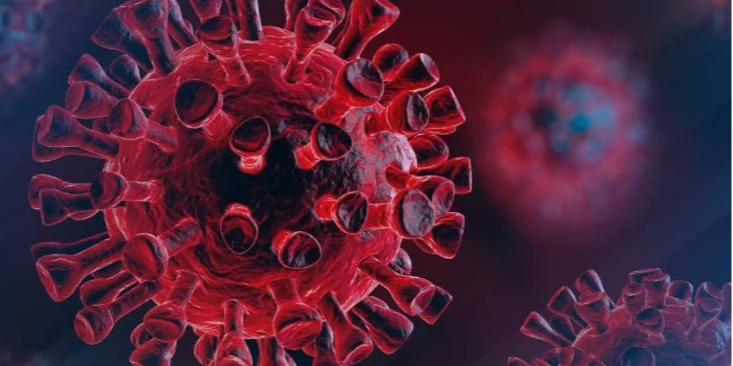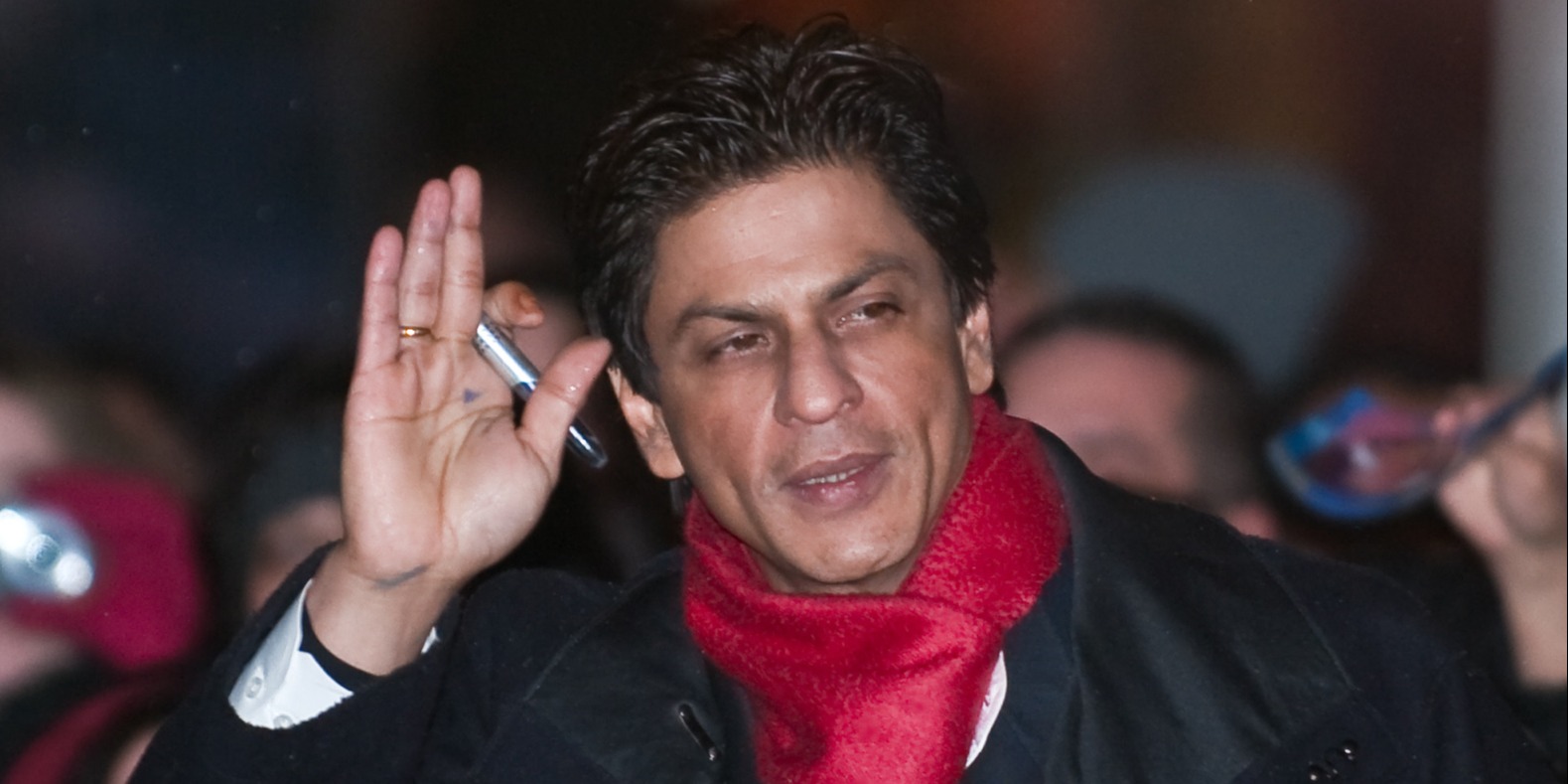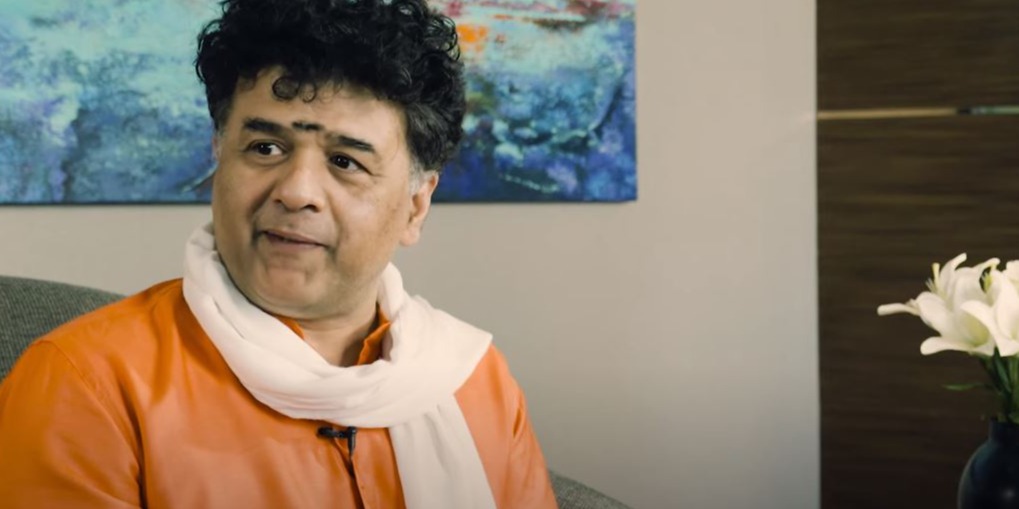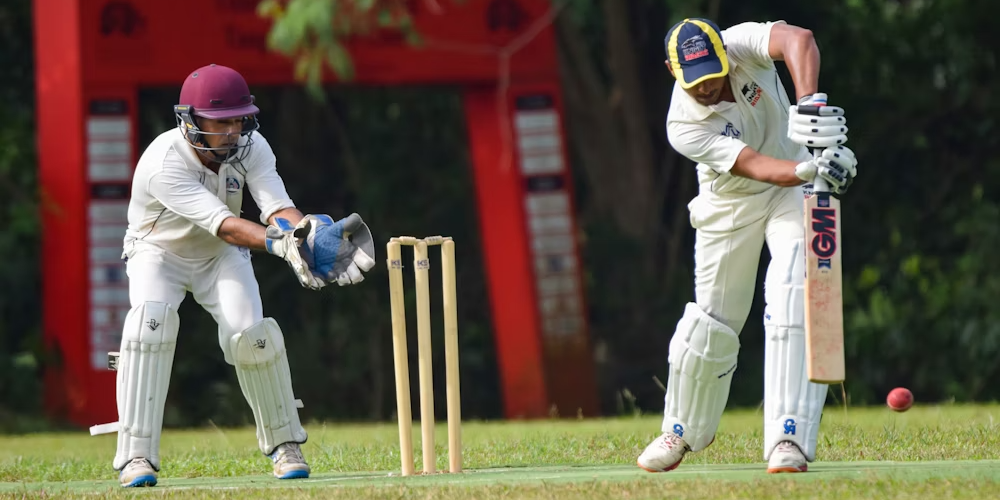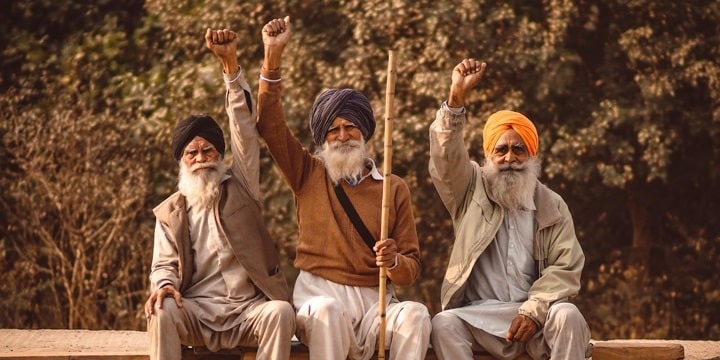
Image Source: WikiMedia
The farmers' protest that has been going on for the past three days is still ongoing, as farmers from different states have been heading towards Delhi, the capital, from various parts of the country. The protest, in which the Samyukta Kisan Morcha (Non-Political) and Kisan Mazdoor Morcha (Farmer Worker Morcha) are the leading forces, is aimed at building pressure on the central government to meet demands of the farming community. As the struggle becomes more intense, both farmers 'union and government are getting ready for the third round of talks so as to work out a way out of the stalemate. Here, we will get you on top of the latest events, as well as on the upcoming meeting between the farmers' leaders and the Union Ministers.
The movement gathered momentum as thousands of farmers, pushing loaders, water tankers, carts and tractors forward from Punjab, moved through Haryana to the neighboring state. This was a loud confrontation between the farmers and the security forces standing in their way as the farmers tried to advance towards New Delhi.
To the farmers' protest, the central government has strengthened the security, at the borders, using different means. Drones were used to watch the situation, some of the farmers mounted kites against them. Water-filled canisters containing tear gas were hurled by the security people towards the Shambhu border area, which is located in Ambala, as the farmers were still continuing their procession called 'Dilli Chalo'.
Notwithstanding the clashes and the tensions brought about by the different groups' agitation, the government and the farmers' unions will still meet again for another round of talks on February 15. The union ministers’ videoconference session with representatives of the protesting farmer unions will be administered by the Arjun Munda, Piyush Goyal, and Nityanand Rai. This meeting has high stakes because the two preceding ones which had not yielded any results.
The farmers who have been seated outside Delhi since Tuesday are confessing their readiness to welcome the meeting with the skies open. Their demands have also pressed upon the Prime Minister Narendra Modi to step in and look into their demands.
A General Secretary of the Punjab Kisan Mazdoor Sangharsh Committee Sarvan Singh Pandher mentioned, "We are going the meeting with an absolutely optimistic mood today and with no doubt we are going to pull out all the positive sentiments from this meeting."
The farmers in the protests have listed a whole range of demands such as implementation of Swaminathan Commission’s recommendations, pensions for farmers and labours, farm debt waivers, withdrawal of police cases along with justice for Lakhimpur Kheri victims. They also claim the return of the Land Acquisition Act 2013, to withdraw from the world trade organization, benefaction for the families of the farmers who lost their lives during the last agitation and so on.
The security measures at the borders were strengthened in a bid to cope up with the continuing farmers' agitation. RAF teams, police personnel, Riot Control Vehicles are now present at Singhu Border, New Delhi. The transportation activity at Singhu (from Delhi to Sonipat) and Tikri (from Delhi to Bahadurgarh) has been shut-down causing tough conditions for commuters.
The ban on the mobile internet and mass SMS, which is in place in the districts of Ambala, Kurukshetra, Kaithal, Jind, Hisar, Fatehabad and Sirsa continues will be effective till 15th February. They are designed to make it possible to keep law and order assignment during the public demonstrations.
The farmers' protest campaign is already popular. The prime farmers` unions, such as BKU (Ugrahan) and BKU Dakaunda (Dhaner faction) announced their position in support of the ongoing agitation on the second day of the movement. The same supra-organisation, Samyukta Kisan Morcha, comprising of 37 different Kisan unions, is also in support of the farmers' protest.
The farmers' protest has a devastating effect on traffic infrastructure in several regions. Train routes in Punjab may be periodically blocked between the hours of 12pm and 4pm, the routes affected being such as Bathinda/Barnala,Ludhiana/Jakhal/Delhi, Rajpura/Delhi, and Amritsar/Fatehgarh Sahib. Vehicle movement has been impacted severely where the border region of Delhi-Ghaziabad, denoting to long-tail traffic jam. - The presence of the security personnel and the barricades are making commuters have difficulties.
Peeling away at the farmers' protest is the fact of how some moments turned to scuffles between law enforcement and dissidents protesting. The tear gas shell has been used with the aim to disperse the demonstrators, while the other side is facing the stone pelting of the security officers in return. The Saakashvili supporters who demonstrated on 8 and 12 of February have been unsuccessful until now, which explains why the protest lasts so long.
The unions of farmers announced a general country strike for the 16th of February calling up on all fair and just demands to be recognized. BKU Ugrahan and BKU Dakaunda (Dhaner faction) are going to aggravate the escalation process by having a 'Bharat Bandh' against this long-needed reform. The farmers have turned to the authorities, showing their determination not only until their claims are fulfilled but also to take adamant steps to ensure this.
Now the protest which has been going on its 3rd day, tensions had not yet been lowered, even the courage of fighters was unshaken. The forthcoming dialogue between both the due sides of the agitation, that is, ministers of the Union government and the farmers' representatives will have the potential to achieve a peace settlement. The farmers' proposals as well as the counter-actions of the security units and the interruption of transportation manifests the scale of the issue. A nation is now monitoring the situation as the discussions continue to obtain a positive outcome that wins over the fears of the farmers.
